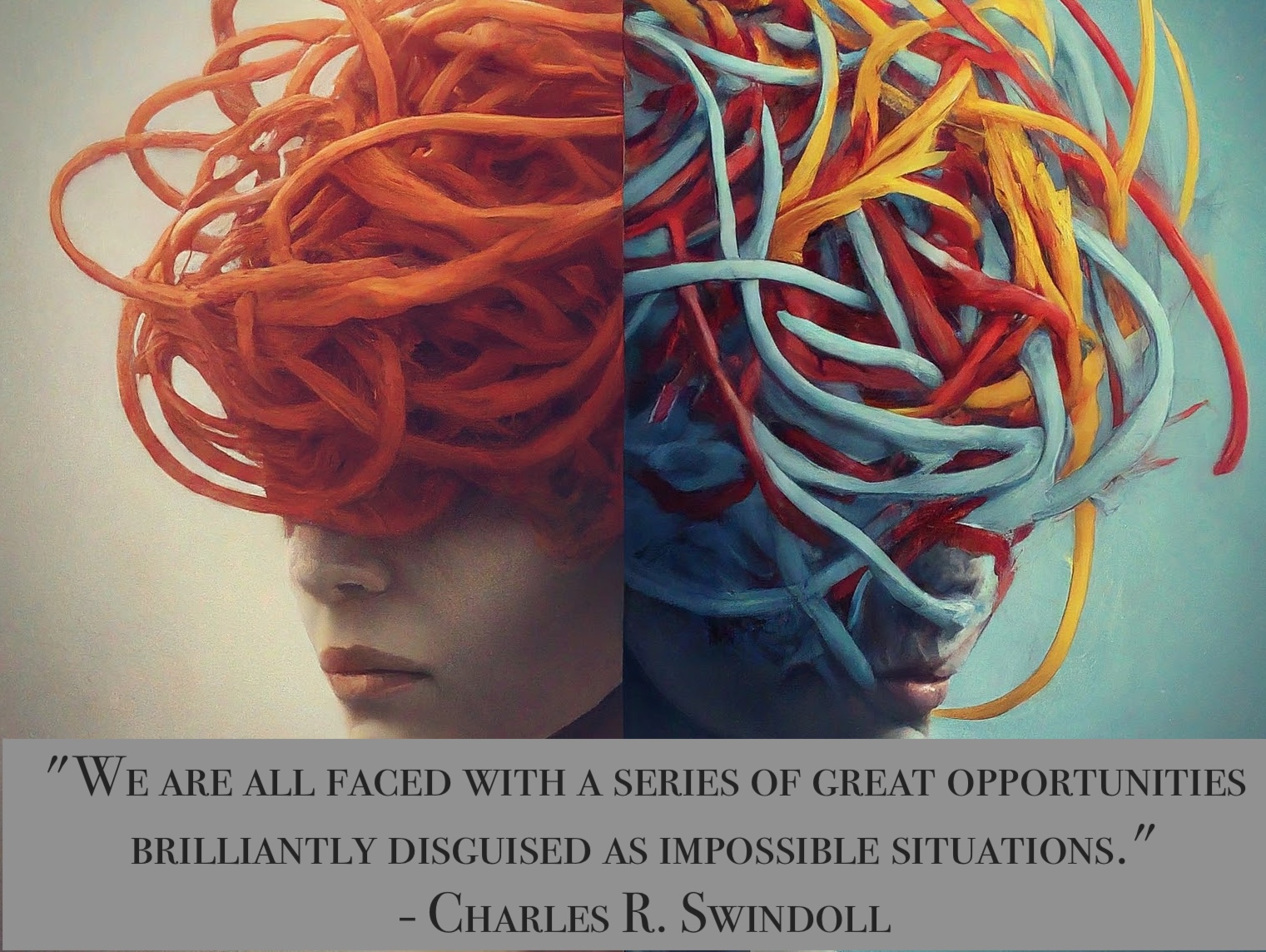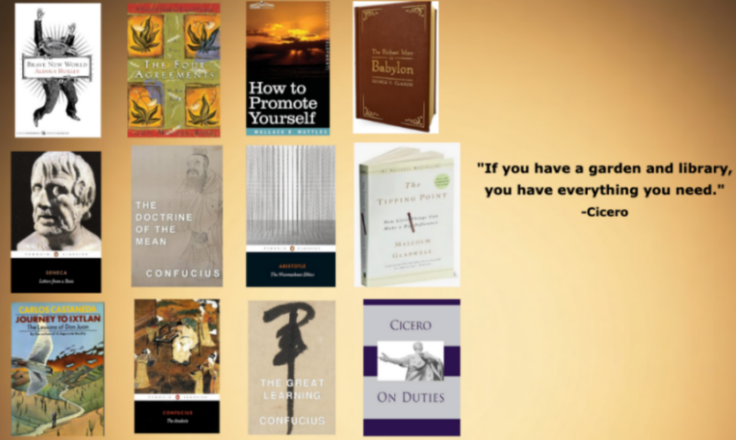Overdriving Awareness: A Curious Case of Excessive Consciousness

We all regard self-awareness as the hallmark of being human, the ability to step back and observe ourselves, our thoughts, and our place in the world. But what happens when we overdrive this introspection? While self-awareness is often celebrated as the pinnacle of human experience, an excess of consciousness can become a heavy burden, leading to existential dread and paralyzing over-analysis.
Philosophical Echoes of a Duality
Philosophers have pondered this concept for centuries. René Descartes, the father of modern philosophy, famously stated "Cogito, ergo sum" (I think, therefore I am). This highlights the centrality of consciousness to our existence. However, Descartes' emphasis on the "I" as the foundation of reality also lays the groundwork for the potential pitfalls of excessive self-focus. In contrast, Eastern philosophies like Buddhism advocate for a detachment from the "self," suggesting that excessive focus on it leads to suffering.
The Dilemma of Over-Awareness
"Consciousness is a disease."
- Fyodor Dostoevsky
Fyodor Dostoevsky, the Russian novelist and existential thinker, viewed consciousness as a double-edged sword. In his book "Notes from Underground," Dostoevsky explores the torment of the hyper-conscious individual, a man plagued by incessant self-reflection and a crippling sense of detachment from the world. The underground man’s excessive consciousness traps him in a state of inaction, where his acute awareness of life's absurdities paralyzes his ability to engage meaningfully with the world. Here is a blog that explains ignorance as a bliss?
"I analyzed everything, weighed it all up... I pondered for a long time..."
- Fyodor Dostoevsky, Crime and Punishment
Raskolnikov in Crime and Punishment justifies his murder through intellectual arrogance, believing himself above the moral constraints of ordinary people. Yet, his very consciousness becomes his tormentor, leading to his eventual breakdown. This struggle translates to the overwhelming freedom of choice we face in the modern world. From endless career options to a constant stream of entertainment, the sheer number of choices can be paralyzing, mirroring Raskolnikov's internal battle between his desires and his conscience.
"To be conscious that you are ignorant is a great step to knowledge."
- Benjamin Disraeli
While Disraeli's quote highlights the positive aspect of self-awareness, it also underscores the paradox of consciousness. The more we know, the more we realize the vast expanse of our ignorance, which can lead to a profound sense of unease and doubt.
The Existential Perspective
"Man is condemned to be free."
- Jean-Paul Sartre
Jean-Paul Sartre, a prominent figure in existential philosophy, emphasized the weight of freedom that comes with human consciousness. Sartre's assertion that "man is condemned to be free" encapsulates the burden of making choices in a world devoid of inherent meaning. For Sartre, excessive consciousness heightens our awareness of this freedom and the accompanying responsibility, often leading to what he termed "bad faith" - the denial of one's freedom and responsibility to escape the anxiety of existence.
"Hell is other people."
- Jean-Paul Sartre
Sartre also recognized the impact of excessive consciousness in social contexts. This famous line from "No Exit" highlights how our acute awareness of others' perceptions can trap us in a state of perpetual self-scrutiny and discomfort.
The Psychological Angle
"The unexamined life is not worth living."
- Socrates
While Socrates championed the pursuit of self-knowledge, modern psychology recognizes the potential pitfalls of excessive introspection. Over-analysis can lead to rumination, a mental state where individuals become trapped in negative thought cycles. Psychologists warn that excessive self-consciousness can result in increased anxiety and depression, as individuals scrutinize their every thought and action, often leading to a distorted sense of self and reality.
Søren Kierkegaard, the Danish philosopher, wrote extensively on the concept of "anxiety." He argued that excessive self-awareness can lead to a state of paralysis, where the sheer number of possibilities and choices available to us becomes overwhelming. This resonates with the modern experience of information overload and the pressure to constantly optimize our lives.
The Eastern Philosophy Insight
"He who knows does not speak. He who speaks does not know."
- Laozi
Eastern philosophies, particularly Taoism, offer a contrasting perspective on consciousness. Laozi's teachings in the "Tao Te Ching" suggest that excessive consciousness disrupts the natural flow of life. The Taoist approach advocates for a harmonious balance between awareness and action, where overthinking is replaced by a state of effortless being. This perspective aligns with the concept of "wu wei" or "non-action," where actions arise spontaneously in accordance with the natural order.
Modern Malaise: The Tangled Web of Awareness
"We live in an age of distraction."
-Neil Postman
Today, the echo chamber of excessive consciousness manifests in countless ways. Social media, a supposed platform for connection, has morphed into a breeding ground for self-scrutiny. We meticulously curate online personas, overthinking posts, dissecting comments, and constantly striving for a meticulously crafted digital self. This relentless self-monitoring feeds anxiety and depression, turning the joy of connection into a performance anxiety-ridden experience.
"Too much information, too little meaning."
- Zygmunt Bauman
Bauman's observation on the overload of information in modern society resonates with the struggle of excessive consciousness. The abundance of data can lead to a crisis of meaning, where individuals feel overwhelmed by the sheer volume of information and struggle to find coherence. The pressure to optimize every aspect of our lives fuels a state of "analysis paralysis." We become bogged down in overthinking every task, every decision, every purchase. The constant mental gymnastics of decision-making leave us exhausted and paralyzed, unable to take the necessary leap of faith to simply act.
Finding Balance
Excessive consciousness, while offering profound insights into the human condition, also presents significant challenges. From the existential dread articulated by Dostoevsky and Sartre to the psychological traps highlighted by modern psychologists, the burden of over-awareness is a recurring theme in philosophical discourse. Eastern philosophies like Taoism provide an alternative approach, advocating for a balanced and harmonious state of being.
As American writer and philosopher Ralph Waldo Emerson wrote, "Self-trust is the first secret of success." Cultivating self-compassion and accepting our imperfections may be the first step. We can also learn to detach from the constant self-analysis and engage more fully with the present moment, drawing inspiration from mindfulness practices. In our modern age of distraction, the challenge is to navigate the fine line between self-awareness and over-analysis, finding a path that embraces the richness of consciousness without succumbing to its weight.



Leave a Reply
You must be logged in to post a comment.